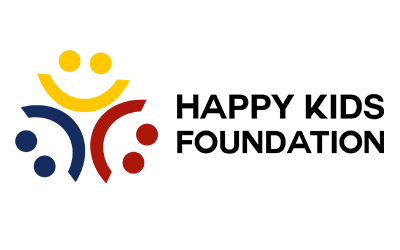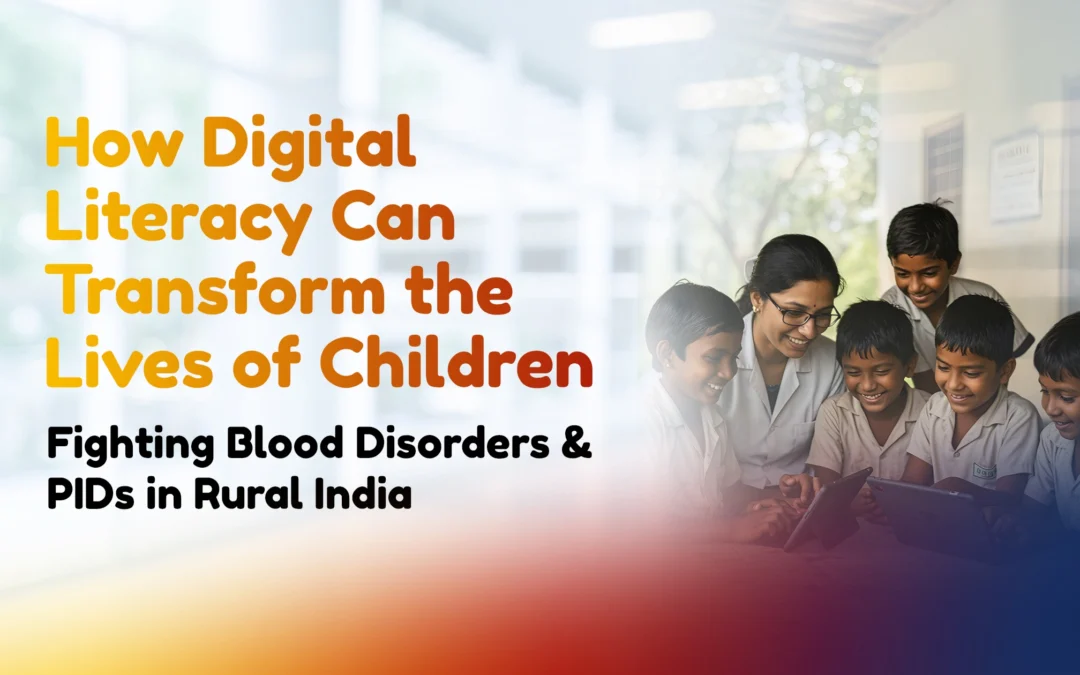In today’s world, digital knowledge is no longer a luxury — it’s a lifeline.
For families in rural and semi-urban India, where access to specialized healthcare is often limited, digital literacy can bridge a massive gap.
At Happy Kids Foundation, we’ve witnessed how digital tools — from smartphones to teleconsultations — have helped families connect with doctors, access life-saving information, and continue treatments for complex diseases like Primary Immunodeficiency Disorders (PIDs) and Blood Cancers.
This blog explores how empowering rural families through digital awareness can revolutionize pediatric healthcare outcomes.
1. The Challenge in Rural India
Children in rural Maharashtra and across India face multiple barriers to specialized care:
- Lack of awareness about rare diseases like PIDs and blood cancers.
- Limited availability of pediatric hematologists and oncologists.
- Financial challenges and travel restrictions for treatment.
- Social stigma and misinformation about serious illnesses.
These gaps often lead to delayed diagnosis, interrupted treatment, and poor outcomes.
Digital literacy, however, is changing this picture — one smartphone at a time.
2. What Does Digital Literacy Mean in Healthcare?
Digital literacy doesn’t just mean knowing how to use a mobile phone.
It means the ability to:
- Search for credible health information online.
- Connect with verified doctors through teleconsultations.
- Join support groups and patient communities.
- Access financial aid programs, awareness campaigns, and foundation support digitally.
In healthcare, digital literacy translates into access, awareness, and action.
3. How Digital Awareness Helps Families of Children with PIDs & Blood Cancers
a. Early Diagnosis through Awareness
Parents who are digitally informed can recognize symptoms like repeated infections, unusual bleeding, or unexplained fevers, and seek timely medical advice.
They can access reliable information about PIDs and pediatric cancers, avoiding misinformation or home remedies.
b. Access to Specialized Care through Teleconsultation
Platforms promoted by organizations like Happy Kids Foundation help families consult pediatric specialists remotely, saving time, cost, and travel.
Even in remote areas, children can receive expert advice from qualified hematologists and oncologists.
c. Staying Connected to Treatment Plans
Mobile technology enables reminders for medication, follow-up tests, and hospital visits.
Parents can upload reports digitally, consult via video, and stay consistent with their child’s treatment — which is crucial in long-term care.
d. Psychological & Emotional Support
Digital spaces allow families to connect with others facing similar challenges.
Peer support groups and WhatsApp communities reduce isolation, helping families stay hopeful and emotionally resilient.
4. Real-Life Impact: When Awareness Saves Lives
At Happy Kids Foundation, we’ve seen countless examples of how digital connection saves lives.
A mother from rural Jalna, who once had no idea what “PID” meant, was connected through our digital campaign.
Within weeks, her child was diagnosed with an immune disorder and began receiving IVIG therapy — a treatment that changed the child’s life.
This is the power of digital literacy — turning information into action and action into recovery.
5. How Happy Kids Foundation Is Driving Digital Healthcare Awareness
- Conducting Digital Literacy Camps in rural schools and communities.
- Training parents to use telemedicine platforms for consultations.
- Sharing verified healthcare information in Marathi, Hindi, and English.
- Creating awareness videos and infographics for social media.
- Partnering with local NGOs to reach remote areas with digital access points.
By combining compassion with technology, we’re helping families find expert care without leaving their villages.
6. The Road Ahead
The goal is simple — no child should be left untreated because of lack of awareness or access.
When parents understand how to use digital tools responsibly, they can connect to the best of healthcare, no matter where they live.
From creating awareness to enabling online consultations and funding assistance — digital literacy empowers rural India to heal.
Conclusion
Digital literacy is not just about connecting people — it’s about connecting hope, healthcare, and humanity.
At Happy Kids Foundation, we believe that an informed parent is an empowered parent.
When rural families understand how to access digital healthcare, every click can bring a child closer to treatment, recovery, and life.
Let’s make rural India digitally aware — because awareness is the first step towards saving lives.


